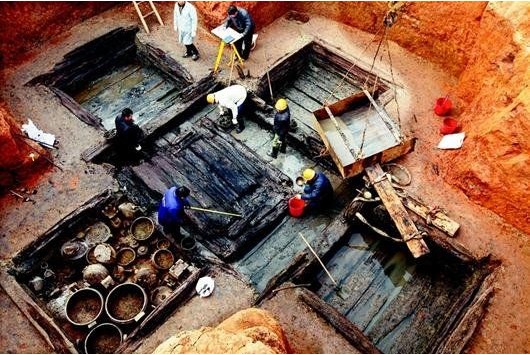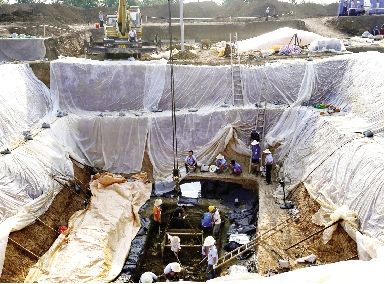
A painted bronze pot has been unearthed from a cluster of tombs in central China's Hubei province, marking the first discovery of painted bronze in an a dynasty about 3,000 years ago, archaeologists said on July 8.
Researchers are still excavating the Yejiashan Graveyard in the city of Suizhou. The graveyard is believed to have been used to bury the lords of the Zeng State during the early Western Zhou Dynasty (1046-771 BC).

Zhang Changping, a professor at the School of History at Wuhan University, said the discovery of the pot will help researchers better understand changes in aesthetic preference that occurred during the Western Zhou Dynasty.
Over 1,500 bronzes, pottery works and lacquered items have been unearthed from the tombs so far.
Huang Fengchun, director of the archaeology team working at the tombs, said the items will aid in research regarding the chronology of the Western Zhou Dynasty and could serve as important evidence for the study of culture in the Hangjiang River Basin.
The Yejiashan Graveyard was discovered in 2011 and was one of the most important archaeological findings in China that year.
We recommend:
